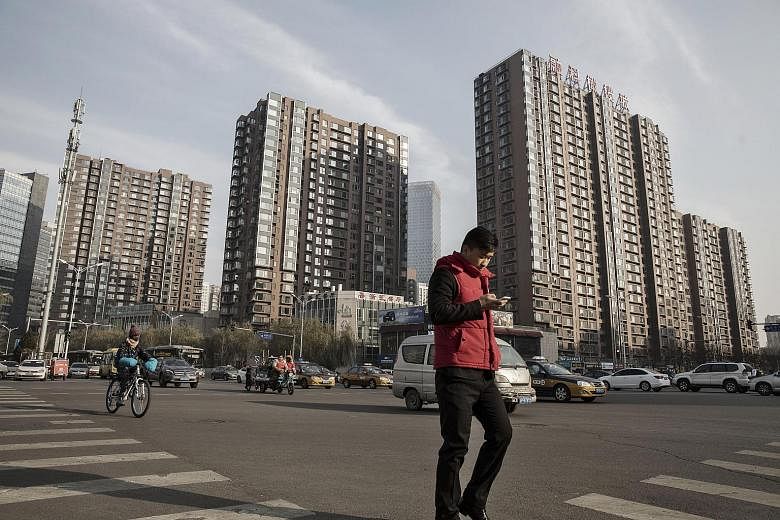SINGAPORE (BLOOMBERG) - China's home prices increased in fewer cities last month in the wake of cooling measures imposed by local authorities.
New-home prices, excluding government-subsidized housing, gained from the previous month in 56 of 70 cities tracked by the government, compared with 58 in April, the National Bureau of Statistics said on Monday. Prices fell in nine cities and were unchanged in five.
In Beijing, the scene of the nation's tightest property restrictions, prices of new homes were unchanged from the previous month, and prices of existing homes fell by 0.9 per cent, the first decline since February 2015.
It was the second straight month that the number of cities with price increases has fallen, as officials persist with curbs to take the froth out of bubbly markets. A deepening property slowdown could trim the nation's economic growth rate, with UBS Group forecasting that sales will "lose more steam" in the second half.
In Shenzhen, the nation's hottest market early last year, new-home prices fell 0.6 per cent from April, the sharpest fall in three months. In Shanghai, where people protested on the street this month about some housing restrictions, new-home prices were unchanged.
So far, demand in smaller cities, where local authorities are trying to clear a build-up of housing stock, is helping to support the market. New home sales rose 13 per cent to 871 billion yuan (S$176.9 billion) in May from a year earlier, exceeding an 8 per cent gain in April, according to Bloomberg calculations based on data released Wednesday by the National Bureau of Statistics.
Analysts including Patrick Wong and Kristy Hung of Bloomberg Intelligence say the housing market may weaken in the second half on government curbs and rising mortgage rates. The average borrowing cost for first-residence buyers jumped 0.21 percentage point to 4.73 per cent in May from April, according to Rong360, a platform that tracks lending across China.

